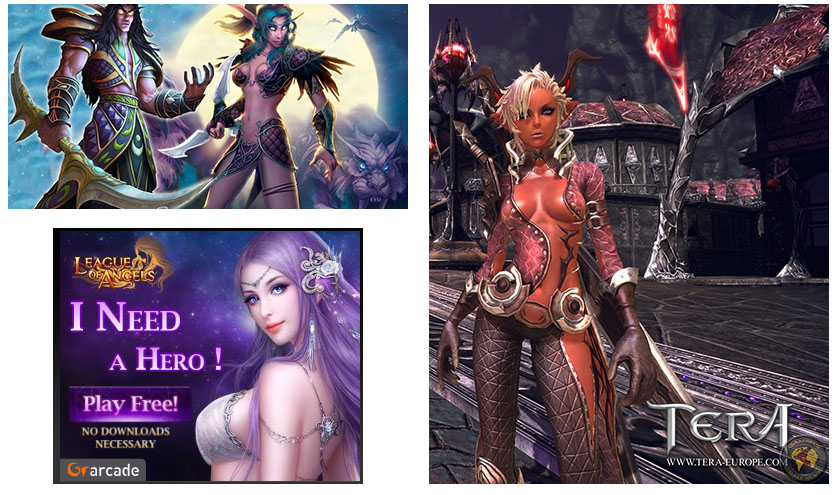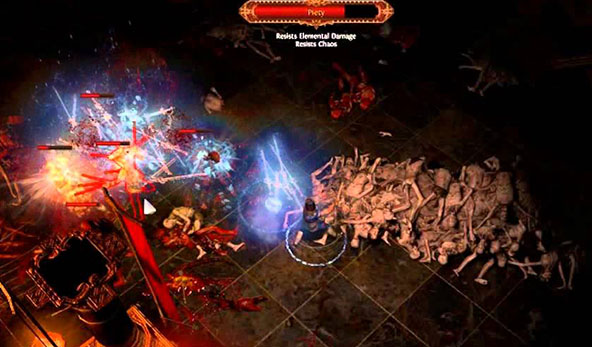It is agreed^ that life on Earth started with single cells, around 4 billion years ago. After a very, very long time, roughly 2 billion later, multicellular life appeared. This followed a catastrophic event called the Great Oxidation Event^ (GOE). But what was catastrophic for others was a gift for us. Without the oxygen created during the GOE, we wouldn’t have been here. Multicellular life brought a plethora of evolutionary advantages and soon enough, dominant lifeforms were born. Living longer, stronger and, most importantly, smarter.
So what does this have to do with corporations, capitalism and the stock market? As I’ll show, quite a lot. The current market ecosystem^ is a place where companies undergo natural selection. But unlike the past 4 billion years, the evolution of our economic organisms is supercharged, almost out of control – this, unfortunately, sometimes comes with a steep cost for our environment^ and current social structures.
But what if a new breed of corporation triggers a financial chain reaction (like the GOE), wiping out most of its competition? Already, a new generation of companies is starting to take shape. And, as new ways to apply technology are found, the chance of a new business model emerging is much greater. Capitalism is bound to evolve^.
Take a look from (very) high above
Let’s zoom out at the level where we, individual humans, can be seen as cells, while our various social structures can be seen as multicellular organisms. From this high up, the corporation is a multicellular organism comprised of humans. A nation-state or ethnic group can also be seen in the same way, but as I will show, the corporation has many more behaviors similar to lifeforms than other social structures do.
First of all, companies evolve at a much faster pace than any other previous social structure. Similar to most complex organisms, in a company we can find groups of cells with different roles. In this case, the cells are humans with different education and skills – including the skill of using advanced tools, which are themselves evolving rapidly. The evolution of our tools is very important, because this is precisely what supercharges the current evolutionary cycle. Not only do we evolve, but so does all our technological ecosystem.
This new form of life has appeared for the same reasons why multicellular organisms thrive. The same natural laws of evolution apply: there are many advantages just waiting to be applied due to the synergies between different types of cellular organization. Think of departments in a company as specialized tissues in a body. Think of different technologies as new means of acting on information and generating survival-value for the company.
Corporations are good at inventing new tools. They do so for the same “survival of the fittest” reason as any other lifeform. The only problem is that we humans are evolving slower than our tools^. As our technology skyrockets, so does the risk of catastrophic events, accidental or otherwise.
Capitalism and the stock market
Capitalism is fueled by an extremely strong impetus to produce more. This primal urge is one of the chief motivators for researching new technologies. The problem with this all-consuming focus is that anything that does not create profit (immediate or forecasted) is disregarded.
The superpower of capitalism seems to be the creation of new meta-lifeforms: economic entities that absorb human capital and create other forms of capital, usually in the form of material goods and technological advances. These technological advances allow capitalism to perfect the entities it creates.
As an evolutionary driver, capitalism is pretty damn good. The problem is that this early 21st century capitalism is obsessed with numbers in fake currencies. The fact is that capital takes many other forms: brain capital, ideological capital, ideation capital and even emotional capital.
There aren’t many corporations that invest in philosophy or the arts. Sure, if the investment can serve towards some economic purpose (for example a PR stunt), then perhaps a company may invest in some artistic or charitable event. The problem with this approach is a short-sightedness regarding what is profitable and what is not. Actually, philosophy and art are extremely profitable because society (which is where the workforce is coming from) is built on ideas and inspiration, not on material goods.
Unfortunately, for the time being, our companies are locked within the context of a money-centric stock market. This makes sure that the corporation is a master of financial efficiency. That’s all fine up to a certain point. When things go awry is when our companies fail in their social responsibility and ethical code. In the rabid chase for profits, this has started to happen increasingly often.
Corporations crush each other without almost any regard for the people involved in the conflict. It’s pretty much like war, except people don’t get killed, they get laid-off. True, that’s a great improvement from our times as barbarians (which haven’t yet passed, just watch the news).
But society is starting to catch on. The people are starting to rebel against corporate irresponsibility. In the near future, expect alternative stock markets to appear. Markets that value a company’s long-term sustainability (ethics, social & environmental responsibility, impetus on R&D). As I will show, such developments are not only necessary, but almost unavoidable.
As technology advances, money will begin to lose relevance (basic income^ will happen sooner or later). Therefore, the corporations that invent new weapons to compete with are those that will survive the next evolutionary leap. Technology will also become too powerful to handle by such crude mechanisms such as the stock market. After all, the stock market is already falling prey to the technology of its own inhabitants^.
The unstoppable march of progress
Every major civilization had at least one mammoth, culture-defining project. For example, the Romans are known for their works of infrastructure and Egyptians are often associated with the monolithic remnants of their pharaohs: pyramids and other massive structures into which their empire has poured enormous amounts of resources (rushing its own demise).
Currently, the most coveted technology seems to be artificial “intelligence”. I used quotes because A“I”, as is currently developed, is not really intelligent^. Humans fear true AI because they believe a sentient “computer” might endanger our species. But we’re very far from creating a sentient being; this is a feat that will require more than just quantum computing. Instead, wherever we read “AI” what they really mean is human-developed algorithms that have certain learning aptitudes (which is why a more correct term is ML – Machine Learning).
But our greatest fear shouldn’t be true AI (sentient AI) but rather this ongoing development of human-defined ML. This is because rather than it being sentient, it is a slave to sentient humans. And because most humans are still very selfish beings^, putting advanced ML systems in the wrong hands might seriously jeopardize society^ (rogue killer drones and automated armies, automatic hackers, stock market viruses, large-scale social engineering).
Corporations are already becoming increasingly complex and will be at least partially ruled by artificial intelligence algorithms (it’s already happening^). The corporation of the future is a master of synergy between humans, computer algorithms and other assets. This sort of company will have a human/machine leadership where machines can work with nanosecond decisions and humans can assist with high-level strategic thinking and ideation.
All of a sudden, we’re heading towards a future that will see thousands of different economic lifeforms, communicating with each other, engaged in perpetual ideation and competition on many more fronts than just money. Could it be that the next stage of life on this planet are corporations? And then, what happens to us?
Ethical capitalism
Just like the cells in our own bodies thrive if we’re healthy, so will we if this higher form of life we find ourselves building is well-behaved^. Quite simply, our future depends on how comfortable and sustainable our corporations will be. And that is why ethics and empathy are important^.
Regardless if corporations will ever be classifiable as life (after all, they eat each other and can spawn all sorts of weird babies), what is certain is that the business sector is far nimbler than government. It is therefore not surprising that governments around the world are becoming the puppets of business interests. Of course, one can argue that it was always so. Perhaps, but now-a-days, the possibilities of buying politicians have increased, because the wealth amassed by various corporations has also increased.
Government has lost its way^ for a good reason: society’s way of ruling itself is not only inefficient and archaic, but it also has very little defense for corruption and other chronic illnesses. A broken democracy^ is like a sick organism: it’s very easy to conquer by infection and disease. As I pointed out in the past, I believe that the only hope for government is a serious make-over, alongside the lines of a Government 2.0^, which is in fact inspired from the way of doing things in the private sector.
Judging by the political circus we’ve all witnessed in the past few years (even decades, centuries), I’m not betting on government ever recovering from this downward spiral. Ironically, this social activist is beginning to think that an evolution of the private sector to higher ethical standards is perhaps the best chance for peace and prosperity.
This evolutionary leap is not only possible, but outright necessary, as many companies have started to discover that an increasingly higher percentage of employees lack motivation. Because the percentage of creative jobs on the market is rising (and will continue to rise) and because lack of motivation kills creativity, the only option for the company of the future is to change in such a way that its constituents are happy and feel a connection with the entity they’re part of.
After all, what’s not to love about a meritocracy based on economic performance and everything this means (intellectual progress of all kinds with happiness as a chief motivator). Combining the efficiency of capitalism with a code of conduct based on empathy may yield a species of corporation that many of us may actually feel happy to be a part of.
[ax_meta fbimgurl=’http://mentatul.com/wp-content/uploads/2019/07/03759-CorporationAsLifeform-Share.png’ lnimgurl=’http://mentatul.com/wp-content/uploads/2019/07/03759-CorporationAsLifeform-Thumb.jpg fbimgw=’1170′ fbimgh=’350′ lnimgw=’250′ lnimgh=’250′ title=’The Corporation As A Lifeform’ desc=’Zoom out. Individual humans, can be seen as cells, and corporations as multicellular organisms. The current market ecosystem is a place where companies undergo natural selection in an ever-quickening race for survival.’]






